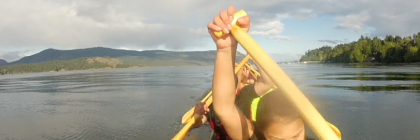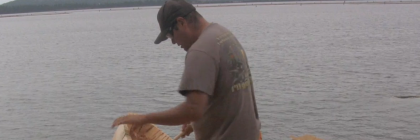’ula’ulh ’utl’ Flaming Star On board the Flaming Star Come along for a ride as the paddlers in the Flaming Star Canoe Club go for

Welcome on board our canoe! Our website is designed for people who would like to improve their Hul’q’umi’num’ language skills while learning about the language as it goes along with canoe culture. Whether you are a coach, a canoe puller, a fan, or even a complete stranger to our Coast Salish territory, we hope you will find something here that will interest and inform you. Please enter with respect and appreciation for the knowledge of our Elders that is shared here. We look forward to taking this journey with you!
nanulh ‘uw’ tl’i’st-hwus tthuw’ t’at mustimuhw tthu snuhwulh.
Canoes were very important to people of times past.
| Listen to this phrase |

’ula’ulh ’utl’ Flaming Star On board the Flaming Star Come along for a ride as the paddlers in the Flaming Star Canoe Club go for




’ula’ulh ’utl’ Flaming Star On board the Flaming Star Come along for a ride as the paddlers in the Flaming Star Canoe Club go for




Here are some words for parts of the canoe
Words for when you are at the races.
Pay attention to these commands for the beginning of the race

Join Sam at the canoe races. Sam explores the shores of Cowichan Bay as he watches his relatives race.

Delores Louie (Swustanulwut) supplies the Hul’q’umi’num’ translation and voice to this children’s story by the wonderful Jez Alborough.

Paul Wyse-Seward (C’uqw’nustun) introduces his project of making a small dug-out canoe. He discusses snuw’uyulh taught to him by his grandfather Bill Seward.

Ruby Peter describes a photograph from the Cowichan Valley Museum and Archives, showing three children in a canoe in 1920.
